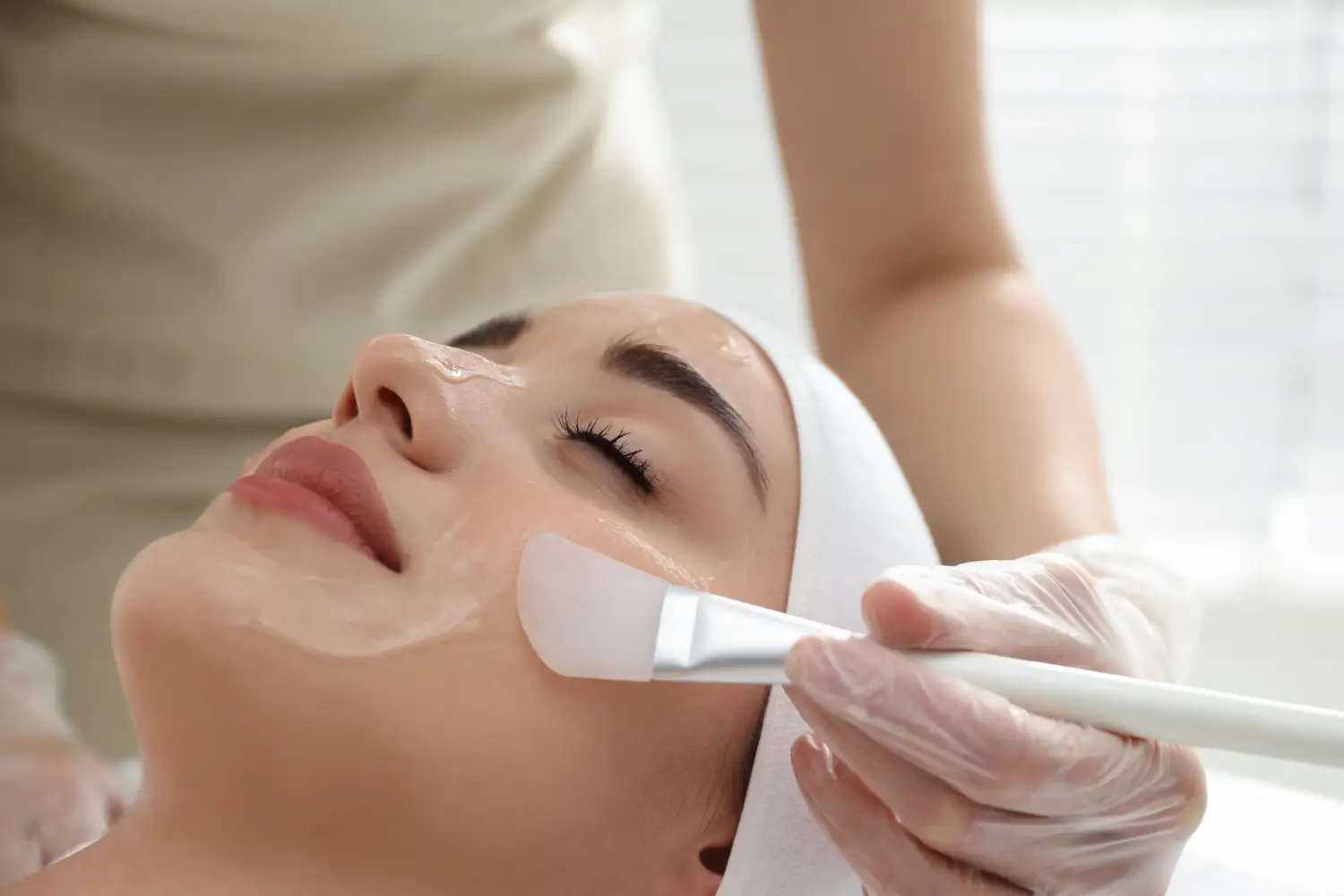
Chemical Peel
Revitalize Your Skin with Advanced Exfoliation
Improve acne scars, hyperpigmentation, and fine lines with our chemical peel treatments. They remove damaged outer layers and reveal smoother, more radiant skin, giving you the confidence you deserve.
What is a Chemical Peel?
A chemical peel is a non-invasive treatment that uses a chemical solution to exfoliate the skin, promoting new cell growth. This process improves skin texture and tone, addressing concerns like:
- Acne scars and blemishes.
- Dark spots and hyperpigmentation.
- Melasma and uneven skin tone.
- Signs of aging, such as wrinkles and fine lines.
We offer three types of chemical peels to meet your specific needs:
- Light Peels: Ideal for gentle exfoliation and minimal downtime.
- Medium Peels: Target deeper layers to treat moderate skin issues like acne scars.
- Deep Peels: Address severe wrinkles and extensive sun damage with dramatic results.
Benefits of Chemical Peels
Chemical peels offer numerous benefits for achieving a glowing, youthful complexion:
- Smooth uneven skin tone and texture.
- Diminish the appearance of acne scars and dark spots.
- Reduce fine lines, wrinkles, and sun damage.
- Treat hyperpigmentation and melasma.
- Stimulate collagen production for firmer, healthier skin.
Who is a Good Candidate for Chemical Peels?
Chemical peels are suitable for most skin types and conditions, including:
- Acne-prone skin.
- Hyperpigmentation or melasma.
- Fine lines and sun damage.
- Uneven skin texture or tone.
During your consultation, we’ll assess your skin and recommend the most effective type of peel for your needs.
The Chemical Peel Process
01
Consultation:
A comprehensive skin evaluation to determine the right peel for you.
02
Treatment:
Application of the chemical solution, which exfoliates the skin’s outer layers.
03
Post-Treatment Care:
Detailed instructions to ensure proper healing and maximize results.
Why Choose Grosse Pointe Dermatology?
Expert Dermatologists:
Skilled, board-certified specialists offering precise care.
Tailored Solutions:
Personalized treatment plans designed to fit your needs.
Advanced Techniques:
State-of-the-art technology for superior results.
Ready to Revitalize Your Skin?
Transform your complexion with a professional chemical peel at Grosse Pointe Dermatology. Contact us today to schedule your consultation and start your journey to glowing skin.
1. What are the common side effects of chemical peels?
Chemical peels are safe and effective when performed by professionals. However, potential chemical peel side effects include:
- Temporary redness and sensitivity.
- Mild swelling or peeling.
- Increased sun sensitivity.
2. How long does it take to see results after a chemical peel?
Results vary depending on the type of peel.
- Light peels: Improvements appear within 1–7 days.
- Medium peels: Results are visible after one week, with continued improvements over several weeks.
- Deep peels: Full results develop after several months as the skin heals completely.
3. Can chemical peels be combined with other treatments?
Yes, chemical peels can be combined with treatments like microneedling or laser therapy for enhanced skin rejuvenation. During your consultation, we’ll recommend the best combination for your goals. Book a consultation here.
4. What should I avoid after a chemical peel?
To protect your skin after a chemical peel:
- Avoid direct sun exposure and always wear sunscreen.
- Refrain from using harsh skincare products, like exfoliants or retinoids until healed.
- Avoid heavy makeup until your skin heals completely.
5. How often can I get a chemical peel?
The frequency depends on the type of peel and your skin’s needs:
- Light peels: As frequent as every 4 weeks.
- Medium peels: As frequent as every 6 weeks.
- Deep peels: Once every few years due to their intensity.
6. How do I prepare for a chemical peel appointment?
Arrive with clean skin. Avoid sun exposure, topical acids (salicylic/glocolic, etc.) and tretinoin (all retinol ingredients) should be discontinued 2-3 days in advance, ask provider about cold sore prophylaxis prior to treatment.
